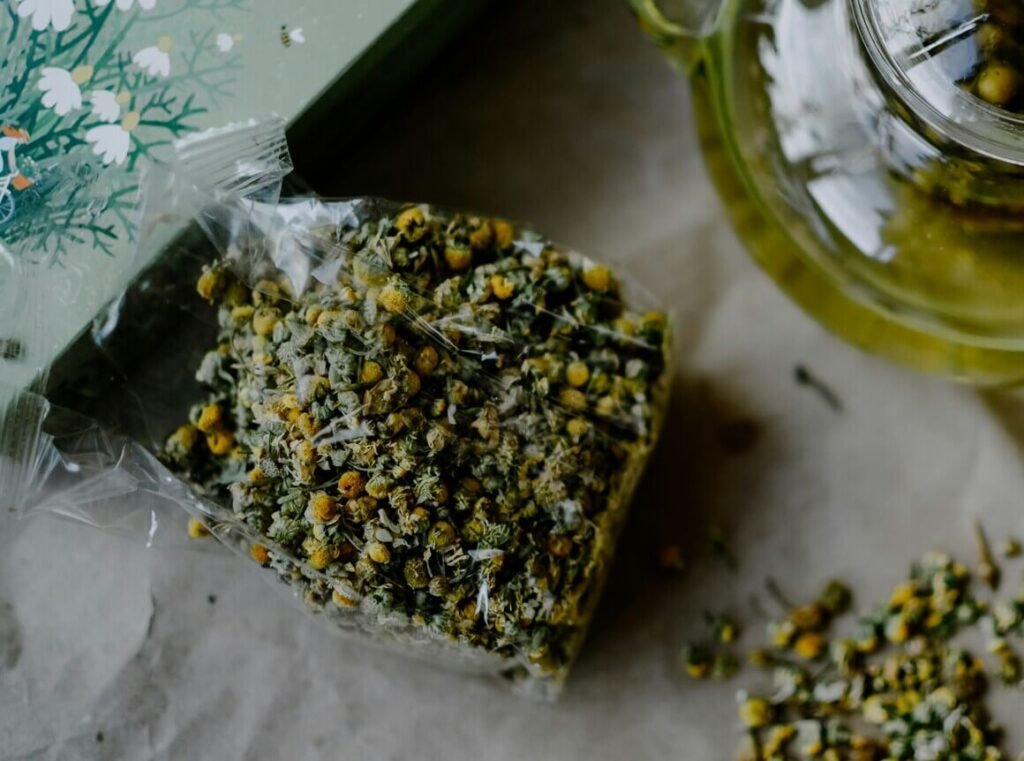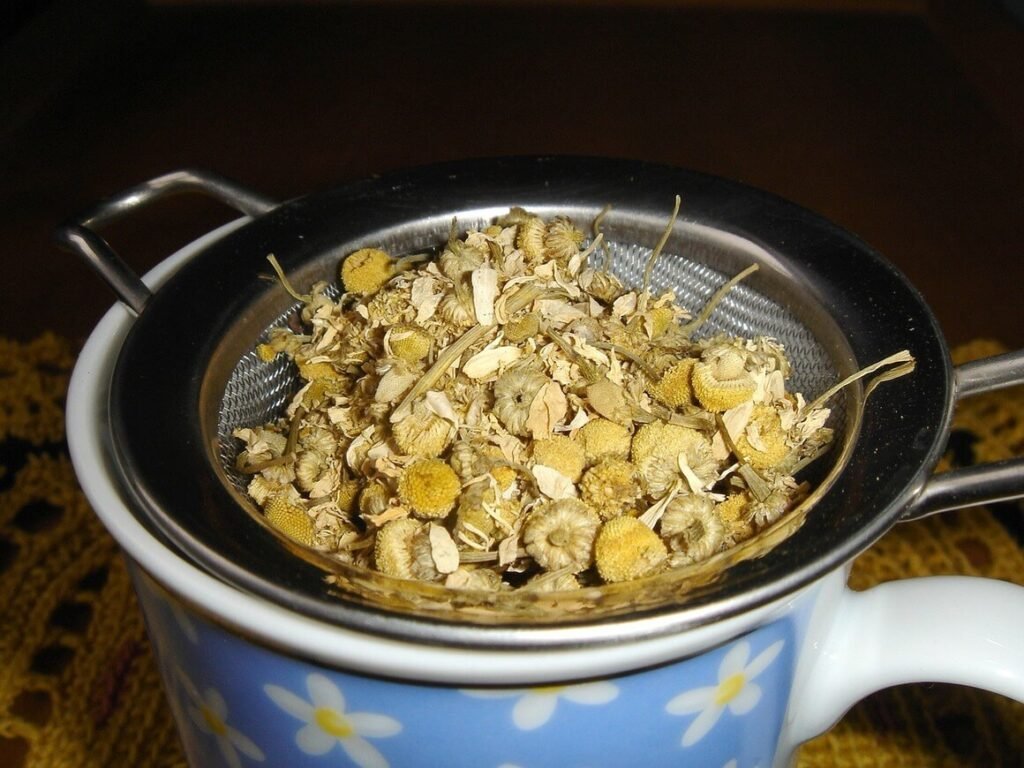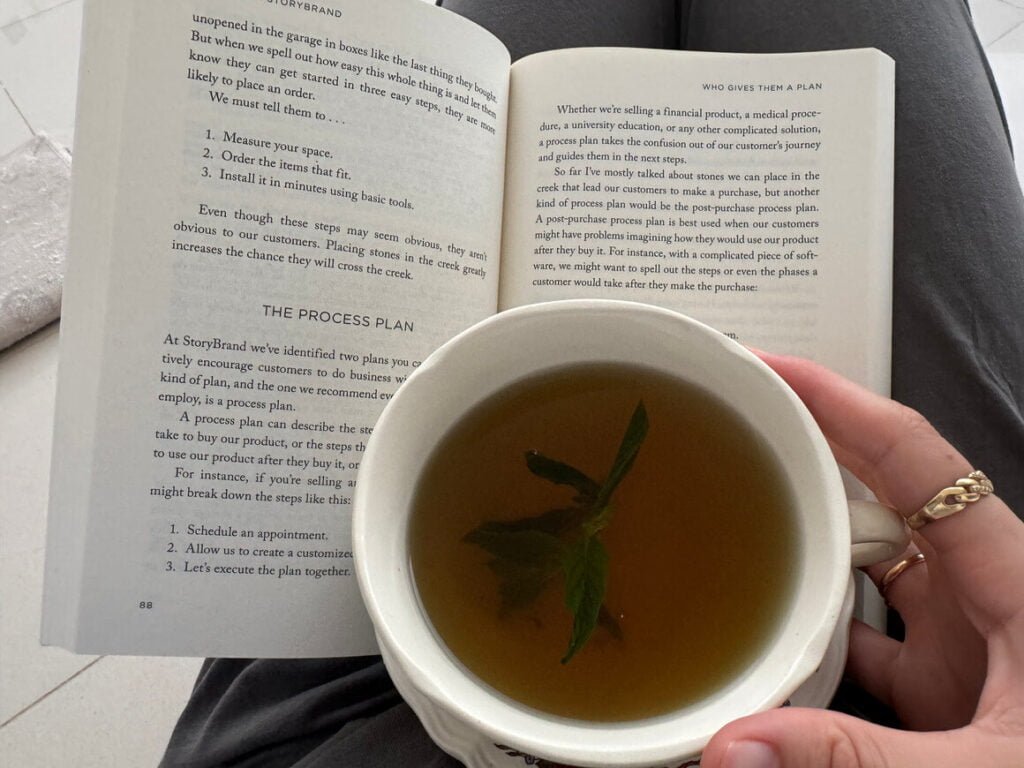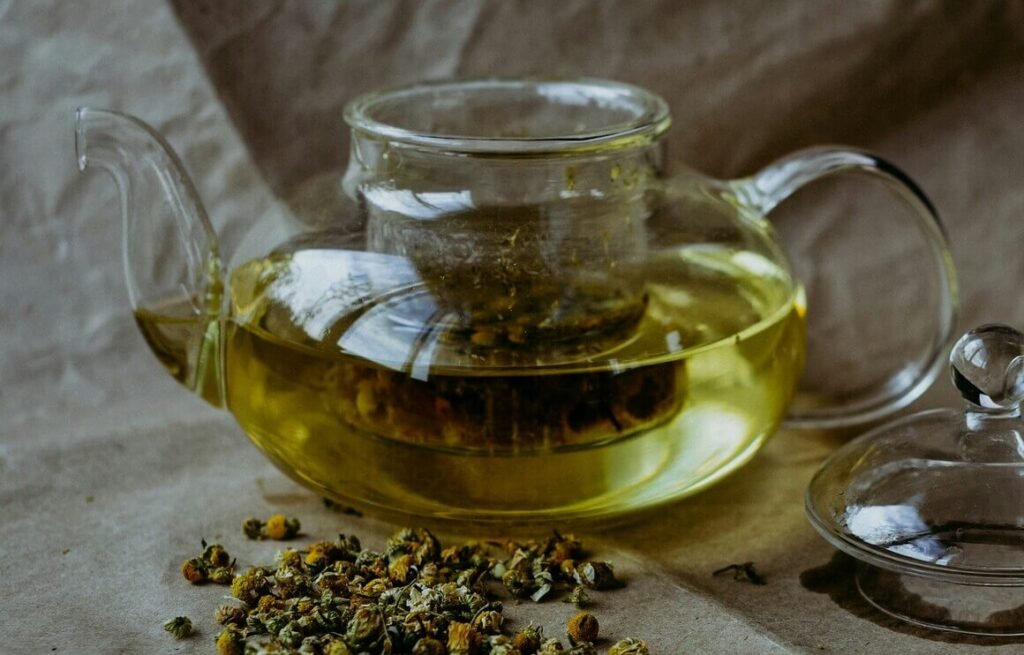Sinus infections.
Just the name conjures images of a throbbing head, relentless congestion, and a general feeling of being under the weather. But what if there was a natural way to find some relief?
I have tried numerous natural remedies, and through my journey, I’ve discovered the most effective sinus soother teas.
In this blog post, I want to share my personal experience with chamomile tea for sinus infection relief and offer insights on how it might help you too.

What Makes Chamomile Tea an Effective Natural Remedy?
Chamomile tea is often praised for its relaxing qualities, especially as a bedtime drink. But from my experience, it offers so much more, especially for those dealing with sinus issues.
The magic lies in its active compounds, such as bisabolol, apigenin, and chamazulene. These ingredients have anti-inflammatory properties that help reduce swelling and ease sinus pressure.
They work together to open up nasal passages, making breathing easier and providing relief from the discomfort of sinus infections.
How Anti-inflammatory Properties Help
Chamomile tea’s anti-inflammatory properties can significantly reduce inflammation in your nasal passages, easing facial pain and congestion.
Regularly drinking chamomile tea may help alleviate your symptoms, allowing you to feel more comfortable and less fatigued.
Relaxation Benefits for Better Sleep
Sinus infections can increase stress and disrupt your sleep, which creates a frustrating cycle of discomfort and fatigue.
One thing chamomile tea is especially renowned for is its ability to enhance sleep quality.
I discovered that drinking chamomile tea can be incredibly relaxing. Just a few sips before bed can help relax your muscles and calm your mind.
By improving your sleep quality, chamomile tea can strengthen your immune system and speed up recovery from sinus infections. This sinus-soothing tea can be a simple yet effective way to enhance your overall well-being and get you back to feeling your best.

A Gentle Approach to Healing
Unlike many over-the-counter medications, chamomile tea is gentle on the stomach and free from harsh chemicals.
This makes it an ideal option for those seeking a natural remedy without the side effects that often accompany pharmaceutical options.
Types of Chamomile Tea and Their Effects
You might be surprised to learn that not all chamomile teas are created equal. There are different types of chamomile tea, each with its own set of benefits that can vary in their effects on sinus infections.
German Chamomile vs. Roman Chamomile
German chamomile (Matricaria recutita) is the most commonly used type for medicinal purposes. It’s known for its potent anti-inflammatory and antiseptic properties.
Roman chamomile (Chamaemelum mobile) is another variety that’s often used in aromatherapy. While both types can be beneficial, German chamomile is generally considered more effective for relieving sinus infections.

Loose Leaf vs. Tea Bags
When it comes to chamomile tea, the form you choose can also make a difference. Loose-leaf chamomile tea tends to be more potent than tea bags since it contains whole flowers.
If you’re looking for maximum benefits, opt for loose-leaf tea. However, tea bags are more convenient and still provide significant relief.

Blended Teas
Some chamomile teas are blended with other herbs like peppermint or eucalyptus. These blends can offer additional benefits, such as enhanced decongestion and a refreshing flavor.
During my healing journey from sinusitis, I’ve tested various natural protocols and tea blends. This experimentation proved incredibly valuable, helping me find the best tea combinations to effectively relieve sinus infection symptoms.

Image: oumaima.haded
Potential Side Effects of Chamomile Tea
While chamomile tea is generally safe, it’s essential to be aware of potential side effects, especially if you have certain medical conditions or allergies.
Allergic Reactions
Chamomile is a member of the Asteraceae family, which includes ragweed, marigolds, and daisies. If you’re allergic to any of these plants, you might experience an allergic reaction to chamomile tea. Symptoms can range from mild itching to severe respiratory issues.
Interactions with Medications
Chamomile tea can interact with certain medications, including blood thinners and sedatives. If you’re taking any prescription medications, consult with your healthcare provider before adding chamomile tea to your routine.
Gastrointestinal Issues
In rare cases, chamomile tea can cause gastrointestinal discomfort, such as nausea or vomiting. If you experience any adverse effects, discontinue use and consult your doctor.
Comparing Chamomile Tea to Other Herbal Remedies
Chamomile tea isn’t the only herbal remedy for sinus infections. Let’s explore how it compares to other popular options like eucalyptus, peppermint, and ginger.

Image: oumaima.haded
Eucalyptus
Eucalyptus is known for its strong decongestant properties. Inhaling eucalyptus steam can help clear nasal passages and reduce sinus pressure. However, it’s not typically consumed as a tea, making it less versatile than chamomile.
Peppermint
Peppermint tea is another excellent option for sinus relief. Its menthol content helps open up nasal passages and relieve congestion.
While peppermint tea is quite effective, it lacks the anti-inflammatory properties that make chamomile so beneficial.
Ginger
Ginger tea is renowned for its anti-inflammatory and immune-boosting properties. It can be very effective in reducing sinus congestion and facial pain.
However, ginger’s strong flavor can be off-putting for some people, making chamomile a more palatable option.
How to Make Chamomile Tea for Sinus Infection Relief
Making chamomile tea is a simple process, but a few tips can help you maximize its benefits for sinus infection relief.
| Ingredients You’ll Need | Brewing Instructions |
|---|---|
| – 1 tablespoon of loose-leaf chamomile tea or 1 chamomile tea bag – 1 cup of boiling water – Optional: honey, lemon, or peppermint leaves | – Boil water and pour it over the chamomile tea. – Steep for 5-7 minutes to allow the active compounds to release. – Strain the tea if using loose-leaf chamomile. – Add honey, lemon, or peppermint leaves for added flavor and benefits. |
Enhancing the Experience
For an extra soothing experience, consider inhaling the steam from your chamomile tea before drinking it. This can help clear nasal passages and enhance the tea’s decongestant effects.

Image: oumaima.haded
Recommended Dosages for Chamomile Tea
While there’s no one-size-fits-all dosage for chamomile tea, certain guidelines can help you achieve the best results.
Daily Intake
For most people, drinking 2-3 cups of chamomile tea daily is sufficient to experience its benefits. If you’re using it specifically for sinus infection relief, consider consuming a cup in the morning, afternoon, and evening.
Concentrated Forms
If you prefer a more concentrated dose, you can find chamomile supplements in capsules or tinctures. These can be particularly useful if you need a stronger anti-inflammatory effect.
Long-term Use
Chamomile tea is safe for long-term use, but it’s always a good idea to take breaks periodically. If you experience any adverse effects, consult your healthcare provider.
Is Chamomile Tea Safe for Sinus Infections?
Safety is always a priority, especially when dealing with health-related issues. Chamomile tea is generally safe for most people, but there are a few considerations to keep in mind.
Pregnant or Nursing Women
If you’re pregnant or nursing, consult your healthcare provider before consuming chamomile tea. While it’s usually safe, it’s always better to err on the side of caution.
Children
Chamomile tea is safe for children, but it’s best to offer it in smaller doses. Always consult with a pediatrician before introducing any new remedy to your child’s routine.
Chronic Health Conditions
If you have chronic health conditions like asthma or autoimmune disorders, it’s wise to consult your healthcare provider before using chamomile tea. While it’s generally safe, individual reactions can vary.
Conclusion
Chamomile tea has been a lifesaver for me when dealing with sinus infections. Its anti-inflammatory properties, relaxation benefits, and gentle approach make it a fantastic natural remedy. While not a cure-all, it can significantly alleviate symptoms like sinus pressure, facial pain, and congestion.

If you’re suffering from a sinus infection and looking for a natural remedy, give chamomile tea a try. Always remember to consult your healthcare provider, especially if you have any underlying health conditions or are taking medication.
Thank you for reading about my personal experience with chamomile tea for sinus infection relief.
If you’re ready to explore more holistic healing approaches for sinusitis, consider booking a consultation with a holistic health practitioner. Your wellness journey starts with small steps, and a cup of chamomile tea might just be your first one.
FAQs on Chamomile Tea For Sinus Infection
Chamomile tea has been a game-changer for me, helping to restore my sleep schedule that was thrown off by sinusitis and providing a soothing, calming effect. While research on its effectiveness for sinus infections continues, it could offer relief for symptoms like congestion and headaches.
Chamomile tea is known for its relaxing properties, which can naturally aid in:
– Anxiety
– Stomach upset
– Difficulty sleeping
In addition to chamomile tea, other options include:
– Rest and hydration
– Saline irrigation
– Light exercise and yoga
– Consuming spicy food
Disclaimer – Knowlege Is Power: This content provides generic information only. It is in no way a substitute for a qualified medical opinion. Always consult a specialist or your own doctor for more information. We do not claim responsibility for this information.


Leave a Reply